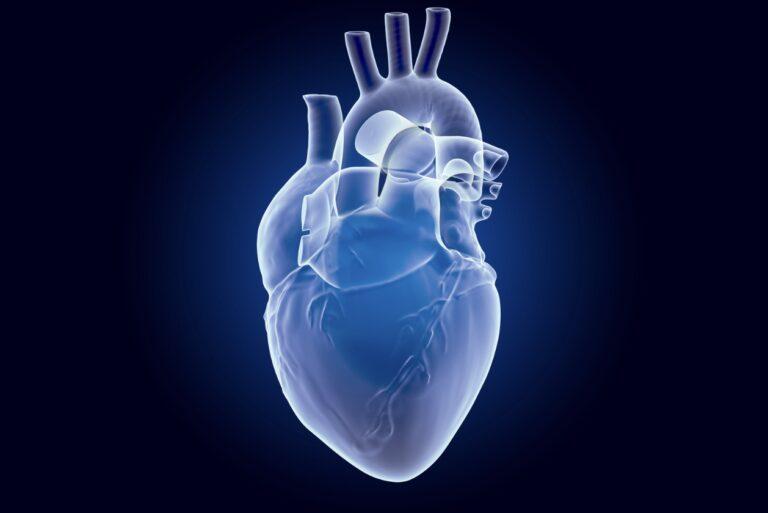
If you’ve been told by your doctor that you have high cholesterol, it’s important to understand what that means and what you can do about it. Cholesterol is a type of fat found in the blood. It’s vital for proper body function, but too much of it can be harmful. A high cholesterol level is a condition in which the amount of cholesterol in your blood is too high. Many factors can contribute to high cholesterol, including diet, exercise, and genetics. Understanding the causes of high cholesterol is the first step in making changes to lower your risk of heart disease and heart attack.
What is cholesterol?
Cholesterol is a fat-like substance that is found in all cells of the body. It helps to produce hormones, vitamin D and vitamin A and substances that help you digest food. Cholesterol also functions as part of the cell membrane. There are two main sources of cholesterol in your blood; cholesterol in the food you eat and cholesterol produced by your liver. Without getting too bogged down with the science let’s first take a look into what cholesterol is.
Many people know their cholesterol levels but what they know is their total cholesterol level. Cholesterol circulates the body in small packages called lipoproteins. These tiny round particles contain fat and protein. So how many kinds of fat particles (lipoproteins) are there and what are their functions?
- Chylomicrons – are the largest particles but aren’t a concern concerning the hardening of the arteries (atherosclerosis)
- Very low-density lipoprotein (VLDL) particles – contain mainly triglycerides as the fat and are our main source of energy in the body. These are smaller than chylomicrons
- High-density lipoprotein (HDL) – also known as good cholesterol, the next smallest in size. HDL cholesterol functions to clean the arteries, helping to prevent coronary heart disease, peripheral arterial disease and strokes
- Low-density lipoprotein (LDL) – known as bad cholesterol. LDL cholesterol is the particle that carries cholesterol to the arteries. It is deposited here and its build-up causes the hardening of the arteries. This restricts blood flow and contributes to cardiovascular disease
What are the main causes of high blood cholesterol?
Some people are born with a high level of cholesterol because their bodies make more than normal. Other causes include an unhealthy diet, smoking, being overweight and lack of exercise. Certain medicines can also raise your cholesterol level. High blood pressure and diabetes are two other conditions that can increase your risk for heart disease.
If you have any of these medical conditions, it’s important to monitor your cholesterol level and take steps:
- Familial hypercholesterolemia
- Obesity
- Family history of high cholesterol and heart disease
- Kidney disease
- Hypothyroidism (underactive thyroid)
- Diabetes
- Liver disease
Certain lifestyle choices also put you at higher risk for high blood cholesterol levels these include:
- Excessive eating of saturated fats
- Excessive eating of refined sugars
- A significant amount of belly fat (apple shape)
- Not moving your body enough
- Excessive alcohol consumption
- Smoking
What is the normal cholesterol level range?
Healthy levels for different types of cholesterol as recommended by the NHS are:
- Total cholesterol – 5 or below mmol/L
- HDL (good cholesterol) – 1 or above mmol/L
- LDL (bad cholesterol) – 4 or below mmol/L
- Fasting triglycerides (no food for several hours before the test) – 1.7 or below mmol/L
- Non-fasting triglycerides (when you eat as normal before the test) – 2.3 or below mmol/L
- Total cholesterol to HDL cholesterol ratio – 6 or below mmol/L
- These values may look confusing at first but your doctor will explain the levels and your results
Cholesterol test
A simple blood test can be taken to measure levels of cholesterol in the body. It is commonly known by health care professionals as a lipid test or lipid profile. Your lipid profile will break down levels of HDL, LDL levels, and triglyceride levels in your body. Cholesterol tests are given routinely as part of a heart health check if you are at risk of high cholesterol but your GP might suggest having a test if they think your cholesterol level could be high.
Treatment for high cholesterol
Medication
Your doctor will take a careful look at your blood test results and other risk factors that may increase heart attack risk to decide if medication is necessary.
Statins are the most widely prescribed medication to lower cholesterol these include:
- Simvastatin
- Atorvastatin
- Fluvastatin
- Rosuvastatin
Statins work by blocking your liver from producing more cholesterol. If you can not tolerate the side effects of statins your dose can be adjusted. Alternatively, your doctor has the option to prescribe bile acid resins, PCSK9 inhibitors and cholesterol absorption inhibitors and others.
Dietary and lifestyle changes
Dietary and lifestyle changes can help to lower cholesterol levels and improve overall health. Eating a healthy diet is one of the most important steps in managing high cholesterol. Foods that are high in saturated fat, trans fat and cholesterol should be limited, while foods that are high in fibre and antioxidants should be increased. Red meat, processed meat, full-fat dairy products and fried foods are some of the worst offenders when it comes to dietary cholesterol. Making healthier choices, such as lean protein sources, whole grains, fruits and vegetables can make a big difference.
In addition to dietary changes, regular physical activity and weight loss can also help to lower cholesterol levels. A healthy lifestyle is the best way to prevent high cholesterol and reduce the risk of serious health conditions.
Ways to reduce the risk of developing high cholesterol
- Move more – regular exercise can help lower LDL levels and increase HDL levels plus improve other health problems
- Eat a heart-healthy diet – a diet centred around whole grains, fruit and vegetables and lean proteins
- Lose weight – it will help lower cholesterol and triglyceride levels and even improve your blood pressure and risk of diabetes and cancer
- Include more oily fish – at least two portions of oily fish a week is thought to be beneficial for high triglyceride levels
- Drink less alcohol – drinking can cause high LDL cholesterol and triglycerides
- Stop smoking – cigarette smoking can damage blood vessels and cause LDL cholesterol to increase and HDL cholesterol to reduce
Further help
Always talk to your health care provider about the best ways to manage your cholesterol. It’s important to know that you’re not alone. The good news is that your doctor can help you manage this condition. In many cases, lifestyle changes and medication can control symptoms and keep the condition from getting worse. However, it is important to work with your doctor to develop a plan that is right for you. Find support from healthcare professionals and the people around you.
Sources
- Cholesterol – NHS
- High Cholesterol – BHF
- Cholesterol levels – CDC
Medical Disclaimer
NowPatient has taken all reasonable steps to ensure that all material is factually accurate, complete, and current. However, the knowledge and experience of a qualified healthcare professional should always be sought after instead of using the information on this page. Before taking any drug, you should always speak to your doctor or another qualified healthcare provider.
The information provided here about medications is subject to change and is not meant to include all uses, precautions, warnings, directions, drug interactions, allergic reactions, or negative effects. The absence of warnings or other information for a particular medication does not imply that the medication or medication combination is appropriate for all patients or for all possible purposes.








